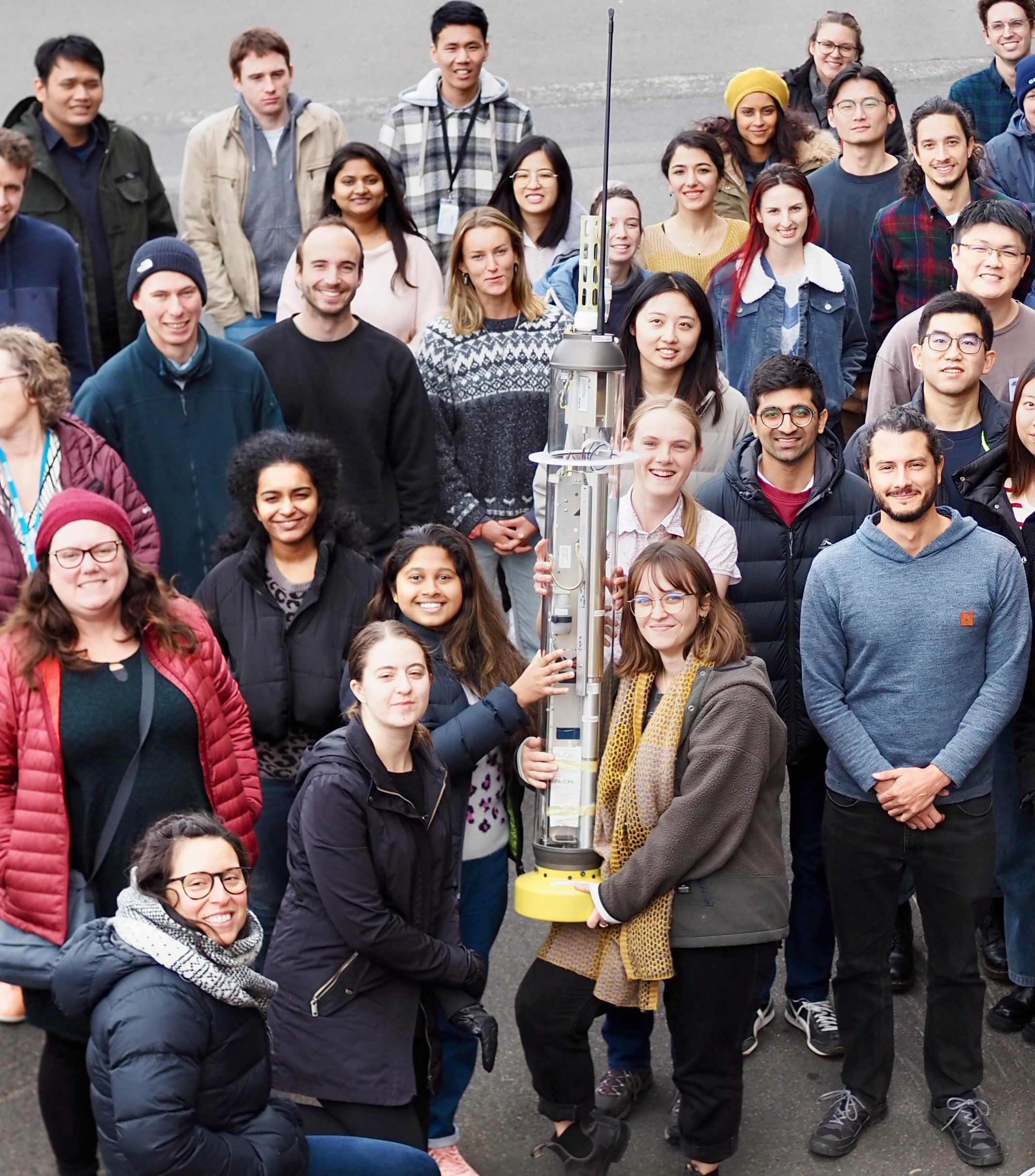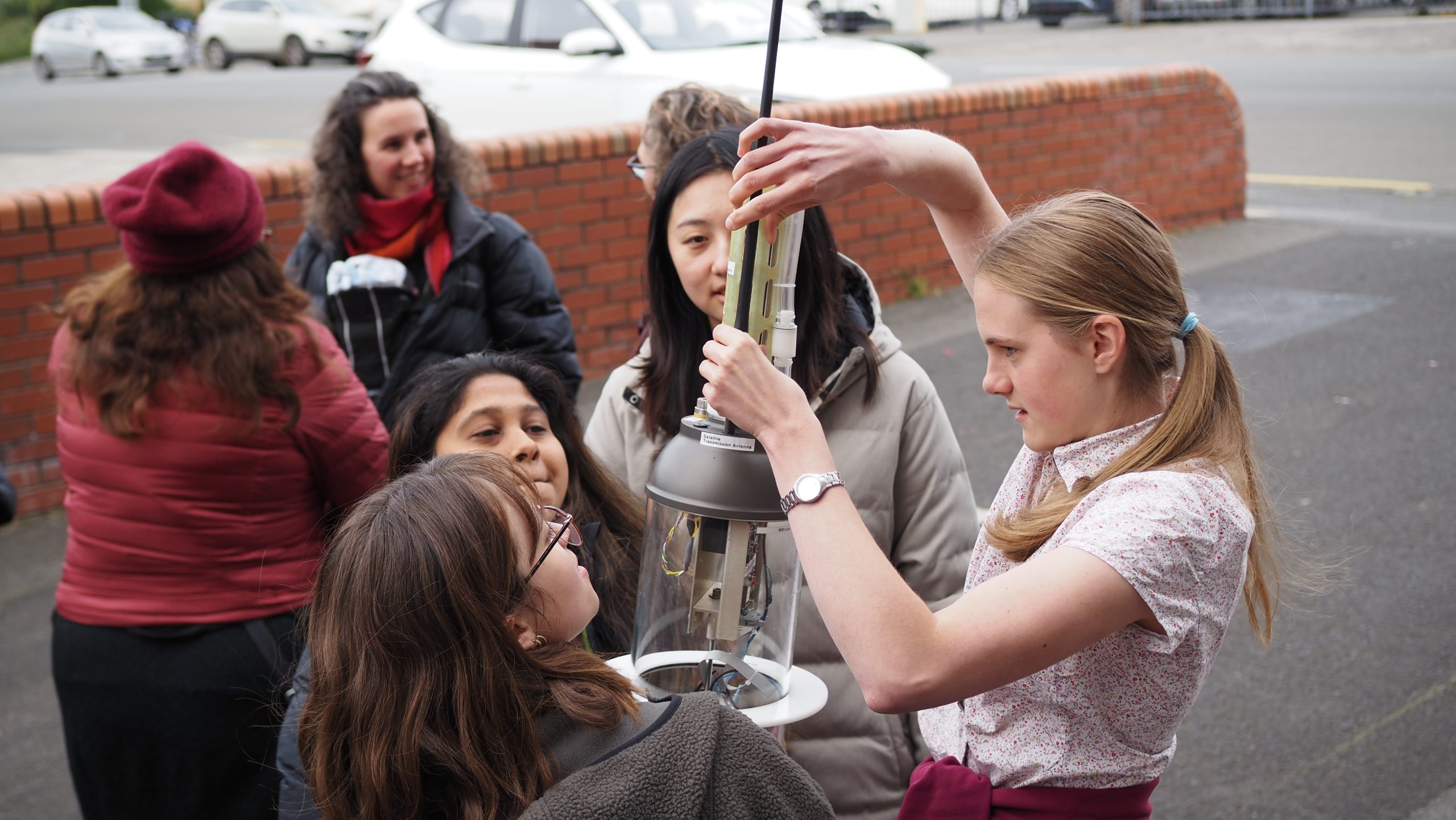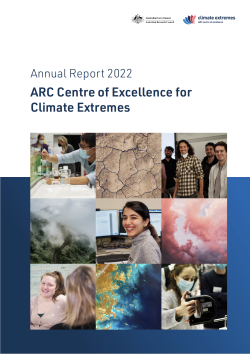
Researcher Development Program
The ARC Centre of Excellence for Climate Extremes Graduate and Researcher Development Program further develops national capacity in climate science by training and mentoring the next generation of researchers. It equips them with the intellectual and technical capacity required to take on the research challenges of the future.
The Researcher Development Program includes fundamental research and communication skills, professional development, mentoring and leadership opportunities, and it involves all Centre of Excellence researchers. The program complements opportunities offered at our university Partner Organisations.
Within this Researcher Development Program is a tailored research training program for postgraduate and honours students, which forms our Graduate Program. Both these programs are coordinated by our Graduate Director, Associate Professor Melissa Hart, who also acts as a point-of-contact, advisor and advocate for the Centre’s students and postdoctoral researchers.

Winter School 2023 – Observations in the Climate System
Our winter schools are the cornerstone of our Graduate Program. We want to graduate students who not only have highly specialised knowledge in their own area of research but also a broad understanding of the discipline as a whole. Our winter schools provide this opportunity. The theme of the winter school changes each year, and shifts from broader, relevant-to-everyone topics, to more focused topics requiring prerequisite knowledge.
This year the winter school topic was Observations in the Climate System. It is a topic that is vitally important to all in the climate sciences. The vast majority of us use observations in some way, but few have a comprehensive understanding of what observations are collected, how they are collected, how they are used to create the gridded products we use in our research, or how they are used to inform climate models. Thus, the Winter School 2023 provided an overview of all of this and more, including visiting some key climate observation labs — the University of Tasmania Institute for Marine and Antarctic Science ice core lab and the Marine National Facility research vessel, the RV Investigator
Science Fundamentals Lectures
In addition to our winter schools, the Centre of Excellence also runs regular Science Fundamentals online lectures, to provide vital breadth of knowledge. This year, the lectures are being facilitated by Centre postdoctoral researcher, Dr Hooman Ayat. Dr Ayat surveyed our Centre students and early career researchers to gather which topics they would like to be covered in these lectures.
The use of statistics in the climate sciences was one of the topics most requested, and thus Chief Investigator Dietmar Dommenget offered a five-session statistics course for all Centre researchers. This course was offered in a flipped classroom mode whereby participants watched short lecture-style videos beforehand, providing time for detailed discussion during our online sessions.
“A cold email might seem like an
Graduate Director, Associate Professor Melissa Hart
intimidating prospect with little chance of success, but if it is written with care and personalised it can open doors
that you might not even have known were there.”
Have you ever wondered how you apply for a PhD?
In Australia, you need to first find a supervisor willing to support your PhD application, which can be a daunting prospect. Our researchers receive many of these requests each week and the quality of the email greatly impacts a prospective candidate’s chances of a positive response.
Our Graduate Director, Associate Professor Melissa Hart, has provided advice on How to cold e-mail for a PhD, which was published in Nature in the careers section. Her key piece of advice: ‘A cold email might seem like an intimidating prospect with little chance of success, but if it is written with care and personalised it can open doors that you might not even have known were there.’
Undergraduate Scholarships
In late 2023 we welcomed our next batch of undergraduate scholars to the Centre. These scholarships provide outstanding undergraduate students with an introduction to both the Centre and climate extremes research.
Students were situated at our node universities and national Partner Organisations and undertook a six-week project supervised by our postdoctoral researchers, which gave them vital supervisory and research leadership experience. Almost half of our undergraduate scholars continue on to further study with us, and some even publish their projects in international journals.
ARC Centre of Excellence for Climate Extremes – Annual Report 2023
From the Chair of the Advisory Board
Climate Science Leaders of the Future
Weather and Climate Interactions Research Program
Attribution and Risk Research Program
Ocean Extremes Research Program
Computational Modelling Systems
Governance, Management and our Commitment to Equity, Diversity and Inclusion

